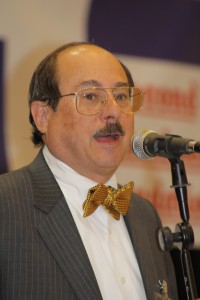By Dave Workman
Senior Editor
Gun control advocates liked it, Second Amendment groups raised red flags and President Barack Obama dropped big hints on how people should vote in the next election as he presented his new proposals that expand background checks and the definition of a gun dealer as part of his new gun control effort.
The president also wants to add hundreds more agents to the Bureau of Alcohol, Tobacco, Firearms and Explosives, and hire more “examiners” for the FBI’s National Instant Check System.
Nita Chaudhary, co-founder and co-executive director of UltraViolet, a self-described group of “women and men who want to take collective action to expose and fight sexism in the public sector, private sector and the media,” applauded the president’s move.
“We, as a nation, cannot wait for Congress, the majority of which is a wholly owned subsidiary of the NRA, to act,” she said in a press release. “The senseless gun violence, which is daily occurrence at this point, is a blight on our nation and Congress’ inaction is beyond shameful.”
Chaudhary called Obama’s new executive push “an important and historic step in the right direction.”
On the other hand, Alan Gottlieb, chairman of the Citizens Committee for the Right to Keep and Bear Arms, and Chris Cox, executive director of the National Rifle Association’s Institute for Legislative Action, ripped the president’s new effort.
“Obama wants more background checks and he is only accomplishing it by having more people buy firearms,” Gottlieb said in a prepared statement, “because of his anti-gun rights agenda and attacks on the Second Amendment. We now have a record number of background checks done every month. Once again his actions have backfired. Ironically, he’s the reason more people are buying more firearms.”
“Once again, President Obama has chosen to engage in political rhetoric instead of offering meaningful solutions to our nation’s pressing problems,” Cox noted in a statement. “Today’s event also represents an ongoing attempt to distract attention away from his lack of a coherent strategy to keep the American people safe from terrorist attacks.”
During his remarks, the president, after noting that Republicans opposed his previous gun control efforts while most Democrats supported them, told his audience, “We need voters who want safer gun laws and are disappointed in the leaders who stand in their way to remember come election time.”
Obama also complained that the subject of guns and trying to reduce violent crime “has become one of our more polarized, political debates, despite the fact that there is a general concensus on what needs to be done.”
The president said he wanted to “bring good people on both sides of the issue (together) for an open discussion.” Obama noted that he is “not on the ballot again,” and he is “not looking to score some points.”
But is that really the case? Some critics have suggested that this new effort is a step toward creating an “Obama legacy” that will have him remembered as the president that tried to pass some kind of meaningful gun control.
The question now is whether that sort of legacy is possible. When the president talks about polarization, critics assert that he, himself has been a polarizing chief executive. In his reaction, NRA’s Cox bristled.
“The American people do not need more emotional, condescending lectures that are completely devoid of facts,” Cox said. “The men and women of the National Rifle Association take a back seat to no one when it comes to keeping our communities safe.
“But the fact is that President Obama’s proposals would not have prevented any of the horrific events he mentioned,” Cox continued. “The timing of this announcement, in the eighth and final year of his presidency, demonstrates not only political exploitation but a fundamental lack of seriousness.”
CCRKBA’s Gottlieb was equally critical of Obama’s late-term effort, which has all the appearance of re-packaged gun control from previous years. He asserted that the Obama administration has had “what seems like an obsession about gun shows” since taking office in 2009.
“The time for penalizing law-abiding firearms owners is long past,” he said. “The president can no longer scapegoat gun shows for crimes committed by people who bought their guns at retail gun shops and went through background checks.
“Twenty years ago,” Gottlieb said, “the firearms community championed two effective measures to keep criminals off the street, the Three Strikes and Hard Time for Armed Crime measures. Those laws went after the right people, while leaving honest citizens alone to exercise their Second Amendment rights without burdensome government interference.”
Indeed, NRA was one of the chief proponents of both measures, which were passed in Washington state and then picked up momentum across the country.
[pullquote align=”full” cite=”” link=”” color=”” class=”” size=””]“The time for penalizing law-abiding firearms owners is long past…The president can no longer scapegoat gun shows for crimes committed by people who bought their guns at retail gun shops and went through background checks.-Alan Gottlieb, CCRKBA[/pullquote]
One tenet of the president’s proposal that might pick up some momentum is the proposed “new $500 million investment to help engage individuals with serious mental illness in care, improve access to care by increasing service capacity and the behavioral health workforce, and ensure that behavioral health care systems work for everyone.”
There has been plenty of talk in the firearms community over the past year about the need to improve mental health services. However, there are concerns that this part of the effort might be aimed at disqualifying more people from gun ownership through mental health “screening.”
Another concern is raised by the proposal to “include information from the Social Security Administration in the background check system about beneficiaries who are prohibited from possessing a firearm.”
“Current law prohibits individuals from buying a gun if, because of a mental health issue, they are either a danger to themselves or others or are unable to manage their own affairs,” the White House noted.
But the Social Security Administration will reportedly begin the rulemaking process “to ensure that appropriate information in its records is reported to NICS.”
The White House statement said this effort is aimed at “approximately 75,000 people each year who have a documented mental health issue, receive disability benefits, and are unable to manage those benefits because of their mental impairment, or who have been found by a state or federal court to be legally incompetent.”
Already, several Republican presidential candidates have promised to quickly undo all of these executive orders if they become president.
But Obama may have given them a boilerplate issue to debate and rip apart for the next several months as the campaign picks up steam.





